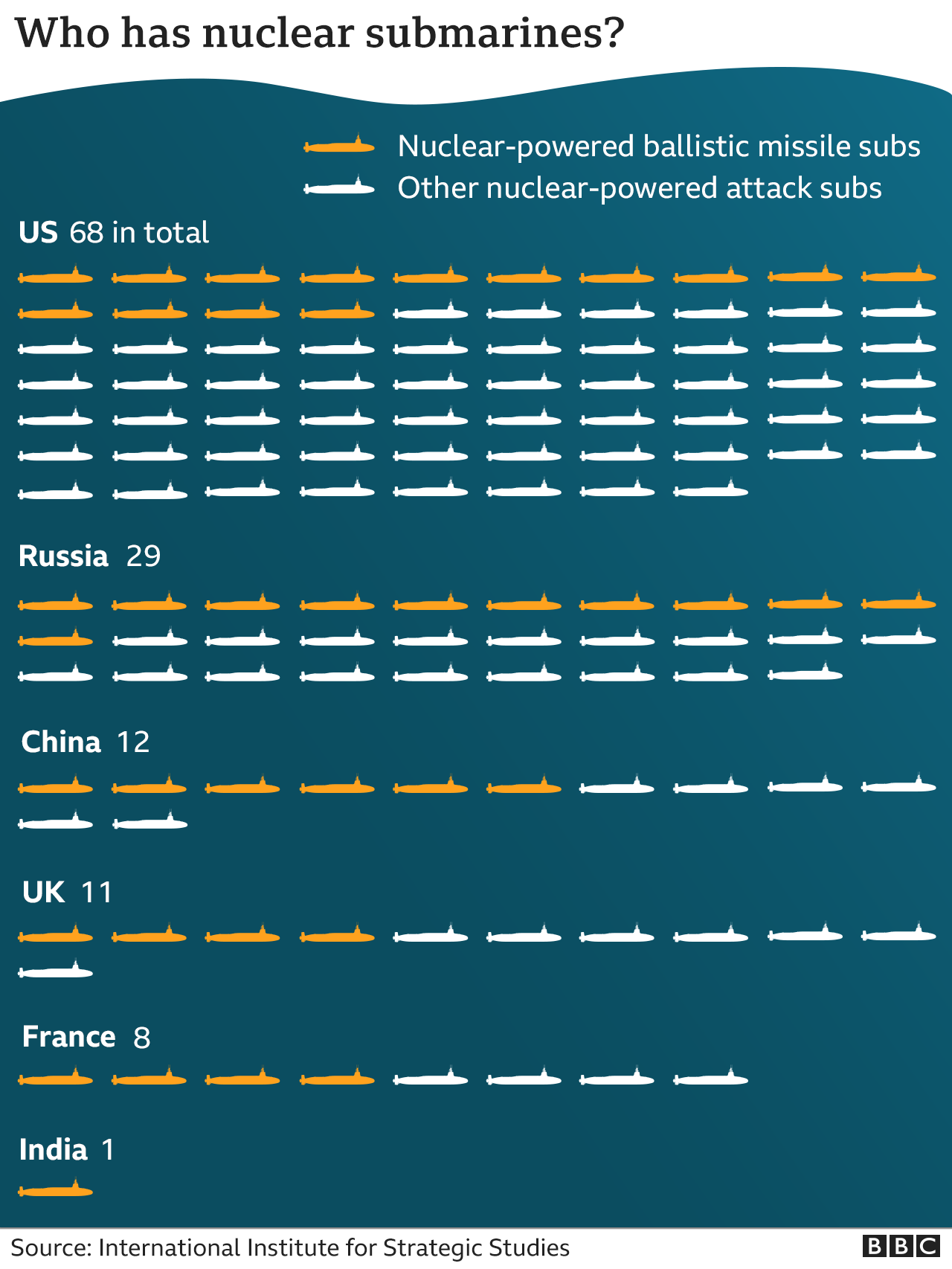Australia has defended its decision to scrap a multi-billion dollar submarine purchase from France in favour of a new security pact with the US and UK.
Prime Minister Scott Morrison rejected accusations that Australia had lied, saying France should have been aware it was prepared to break the deal.
France says the Aukus pact has led to a “serious crisis” between the allies.
In an unprecedented move, it has recalled its ambassadors from the US and Australia as a sign of protest.
Under the Aukus pact, Australia will be given the technology to build nuclear-powered submarines as a way of countering China’s influence in the contested South China Sea.
The partnership has ended a deal worth $37bn (£27bn) signed by Australia in 2016 for France to build 12 conventional submarines. France says it was informed of the pact only hours before the public announcement was made earlier this week.
Mr Morrison on Sunday said he understood France’s disappointment, but that he had always been clear about Australia’s position.
The French government “would have had every reason to know that we had deep and grave concerns”, he said.
“Ultimately this was a decision about whether the submarines that were being built, at great cost to the Australian taxpayer, were going to be able to do a job that we needed it to do when they went into service and our strategic judgment based on the best possible of intelligence and defence advice was that it would not.”
Mr Morrison’s comments came after French Foreign Minister Jean-Yves Le Drian told France 2 television there had been “lying, duplicity, a major breach of trust and contempt” over the deal.
He said France’s ambassadors to the US and Australia were being recalled to “re-evaluate the situation”, but that there had been “no need” to recall the ambassador to the UK, which he described as a “third wheel”.
US President Joe Biden is expected to hold talks with his French counterpart Emmanuel Macron in the coming days.
“We want explanations,” French government spokesman Gabriel Attal said on Sunday.
Meanwhile, newly appointed UK Foreign Secretary Liz Truss defended the agreement in an article for The Sunday Telegraph, saying it showed Britain’s readiness to be “hard-headed” in defence of its interests.
The pact means Australia will become just the seventh nation in the world to operate nuclear-powered submarines. It will also see the allies share cyber capabilities, artificial intelligence and other undersea technologies.
China has accused the three powers involved in the security pact of having a “Cold War mentality”.
Clumsy diplomacy, heightened emotions and spy-like secrecy: the row over the new security pact between the UK, the US and Australia has it all.
But amid the increasingly shrill invective from humiliated French ministers, there is a fundamental truth: the West is struggling to make up its mind about China.
Washington has now been joined by Canberra and London in acting together to address the security challenge. Other countries – particularly some in Europe – are less hawkish, still trying to split the difference between economic cooperation and strategic competition with Beijing.
France is furious at the breach of contract by Australia and the lack of trust shown by the US and the UK. So there is talk in the French papers of further retaliation, beyond the recall of ambassadors, perhaps involving Nato. Others are speculating this row might finally encourage Europe to agree some greater strategic autonomy.
The truth is more straightforward: if the West wishes to protect its interests in the Indo-Pacific, then France and other European powers need to be on the same page as the US and its Anglophone allies. And right now both sides are not even reading the same book.


Leave A Comment